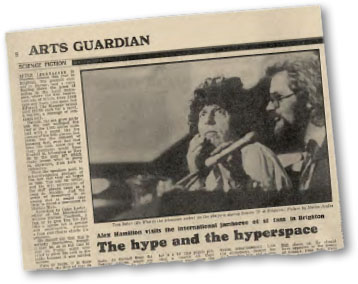Back in 1979, when Doctor Who Weekly was conceived in Jadwin House, the offices of Marvel Comics, on London’s Kentish Town Road, it was a world of typewriters, Betamax videotapes and a mail service that was known to operate a ‘second post’. It was a world before emails, texting and the internet – which meant that most communication between businesses was done through letters and memos, typed onto paper using old-fashioned typewriters, and sent through a First Class postal service which cost 10p.

The correspondence between Marvel Comics and BBC Enterprises in the formative days of DWM was no different. Of course, that means that many of the physical records of various problems and conflicts still physically exist – stuffed into filing cabinets, and lying dormant for decades – not held purely in streams of binary digits, wiped in a millisecond from a hard-drive or server once they had done their job. As such, we’re able to understand some of the magazine’s extended birth pains, as the BBC and Marvel tried to establish what could and couldn’t be done with a magazine agreement built around Doctor Who.